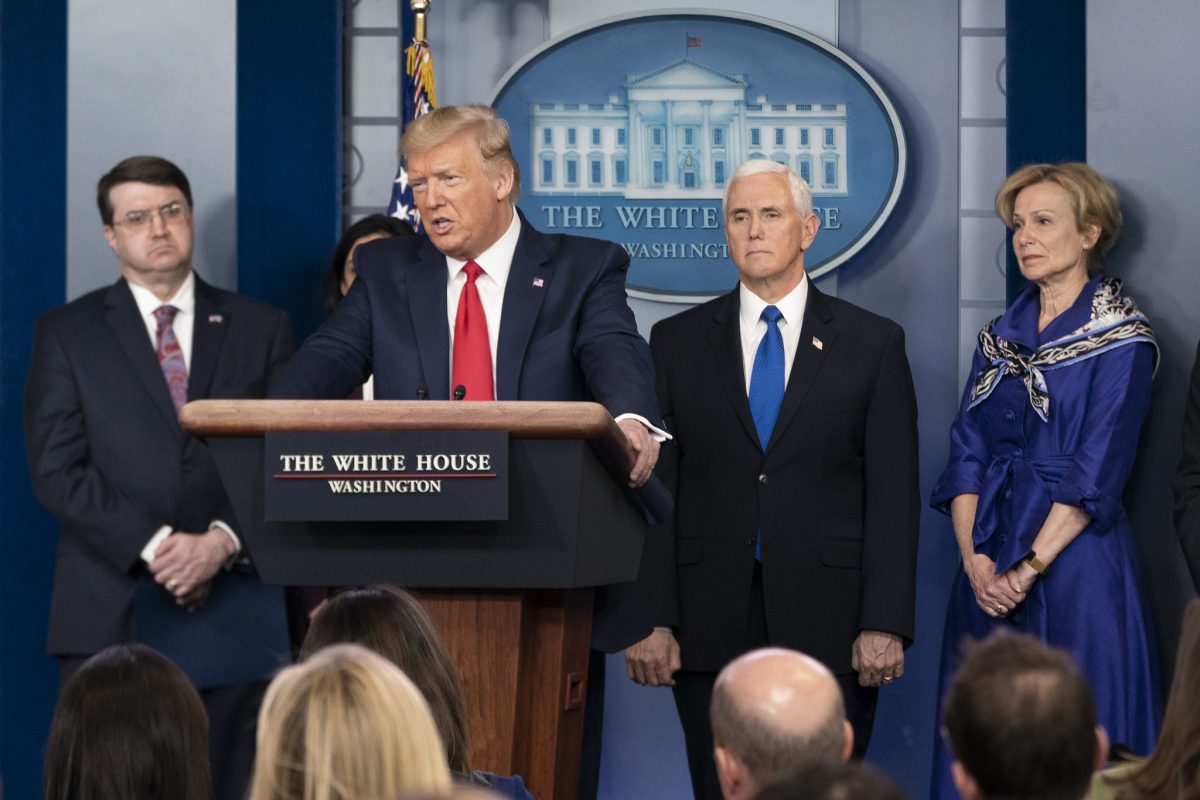Coronavirus Fallout Highlights Asian American Discrimination in the U.S.

As the fallout from the coronavirus (COVID-19) continues to escalate throughout the United States, racism and xenophobia directed toward Asian Americans and Pacific Islanders (AAPIs) are coming from many sources including an unexpected one: the White House.
On March 17th, CBS News White House Correspondent Weijia Jiang reported on Twitter that an unnamed White House official referred to the coronavirus as the “Kung Flu” in front of her. Jiang, a Chinese American, questioned if the official could be using more harmful language in private settings. While the incident shocked many and drew criticism from other journalists and members of the public, it wasn’t the first time White House officials have used racially insensitive language in reference to the virus. President Trump has repeatedly used the descriptor “Chinese virus” on twitter and in public statements to describe the illness, drawing swift rebukes from many leaders. According to NBC News, New York Mayor Bill de Blasio, leaders of the Centers for Disease Control (CDC), and others have condemned the remarks for fear that they could further endanger and ostracize AAPIs.
On March 18th, Senator John Cornyn (R-TX) piled onto the xenophobic language in an interview, blaming China for the transmission of the virus and further engaging in racist tropes about Chinese culture to illustrate his point.
Those fears were compounded by nationwide reports in the news and firsthand accounts on Twitter of Asian Americans and Pacific Islanders being targeted and harassed amid the coronavirus disarray. These racist and xenophobic incidents demonstrate a larger issue across the country. PRRI’s 2018 American Values Survey found that 44% of Americans felt that Asians faced a lot of discrimination in the United States. This includes 41% of white Americans, 46% of black Americans, and 43% of Hispanic Americans. Despite a small sample size, Asian Americans and Pacific Islanders are significantly more likely to say they face a lot of discrimination in the country (87%).[1]
Young AAPIs also reported experiencing racial targeting. A 2018 MTV/PRRI report on 15 to 24-year-olds’ perceptions of discrimination found that Asians and Pacific Islanders (35%) are more likely than white young people (4%) to have experienced racially motivated discrimination in the last 12 months. The survey also found that a majority of AAPI young people (55%) say race relations are a critical issue to them personally, while only 37% of white young people agree.
[1]Sample size for Asian Americans and Pacific Islanders is 75. Differences are statistically significant despite the smaller sample.”

